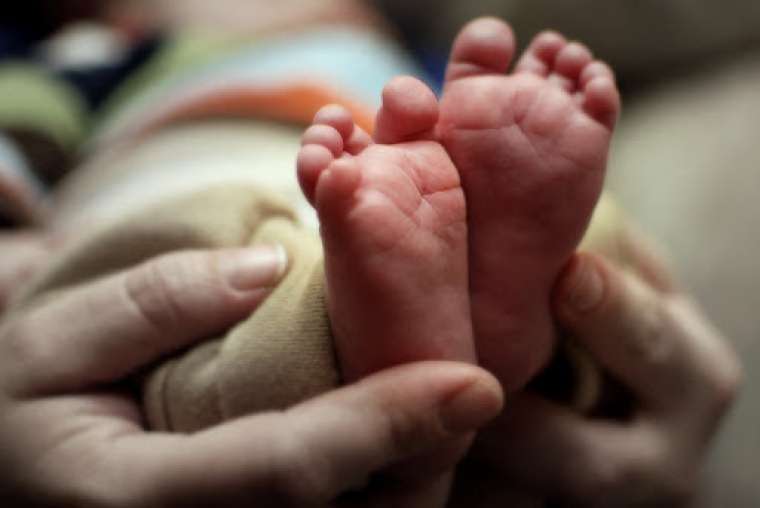Baby Feet. Credit: Morgan via Flickr (CC BY 2.0).
Poland’s constitutional court published on Wednesday the rationale for its declaration that abortion for fetal abnormalities is unconstitutional three months after it made the ruling.
In the highly anticipated ruling on 22 October, the Constitutional Tribunal in Warsaw said that the law introduced in 1993 was incompatible with Poland’s constitution.
But the law did not come into effect until the ruling was published in the country’s Journal of Laws on 27 January.
The 154-page ruling said: “In the opinion of the Tribunal, an unborn child is, as a human being — a person who enjoys innate and inalienable dignity, a subject who has the right to life; and the legal system must, according to Article 38 of the Constitution, must guarantee due protection for this central good, without which this subjectivity would be deleted.”
The court’s verdict prompted a wave of demonstrations across Poland. Protesters directed their anger at the ruling Law and Justice party (PiS), but also at the Catholic Church, which welcomed the decision.
Demonstrators disrupted Masses while holding signs supporting abortion, left graffiti on Church property, vandalized statues of St. John Paul II, and chanted slogans at clergy.
The ruling, which cannot be appealed, could lead to a significant reduction in the number of abortions in the country.
Until now, Polish law permitted abortion only in cases of rape or incest, a risk to the mother’s life, or fetal abnormality.
Approximately 1,000 legal abortions take place in Poland each year. The majority are carried out in cases where the unborn child has a severe and irreversible disability or a life-threatening incurable disease.
Polish pro-life campaigners describe the legal provision as “eugenic.” Data from the Ministry of Health shows that in 2019, the likelihood of Down syndrome accounted for 40% of abortions.
Jerzy Kwasniewski, president of the Ordo Iuris Institute, said: “The justification of the judgment strongly emphasizes that, if the mother’s life and health are not endangered, the legal protection of the child’s life is complete. This is a step forward, firmly removing purely eugenic abortion from Polish law.”
Bartłomiej Wróblewski, a Law and Justice MP who was among those who asked the tribunal to review the law, wrote on Twitter: “Selecting people based on illness and disability is unconstitutional. I am glad that the justification for the court’s judgment, in this case, has been published.”
The constitutional court was asked to examine the law in 2019 by a group of 119 MPs belonging to the Law and Justice party, as well the smaller parties Konfederacja and PSL-Kukiz’15.
22 October — the day the court made the ruling — is the feast day of the Polish pope St. John Paul II, who led the Church from 1978 to 2005 and galvanized the pro-life movement in Poland and around the world.
Source: CNA

